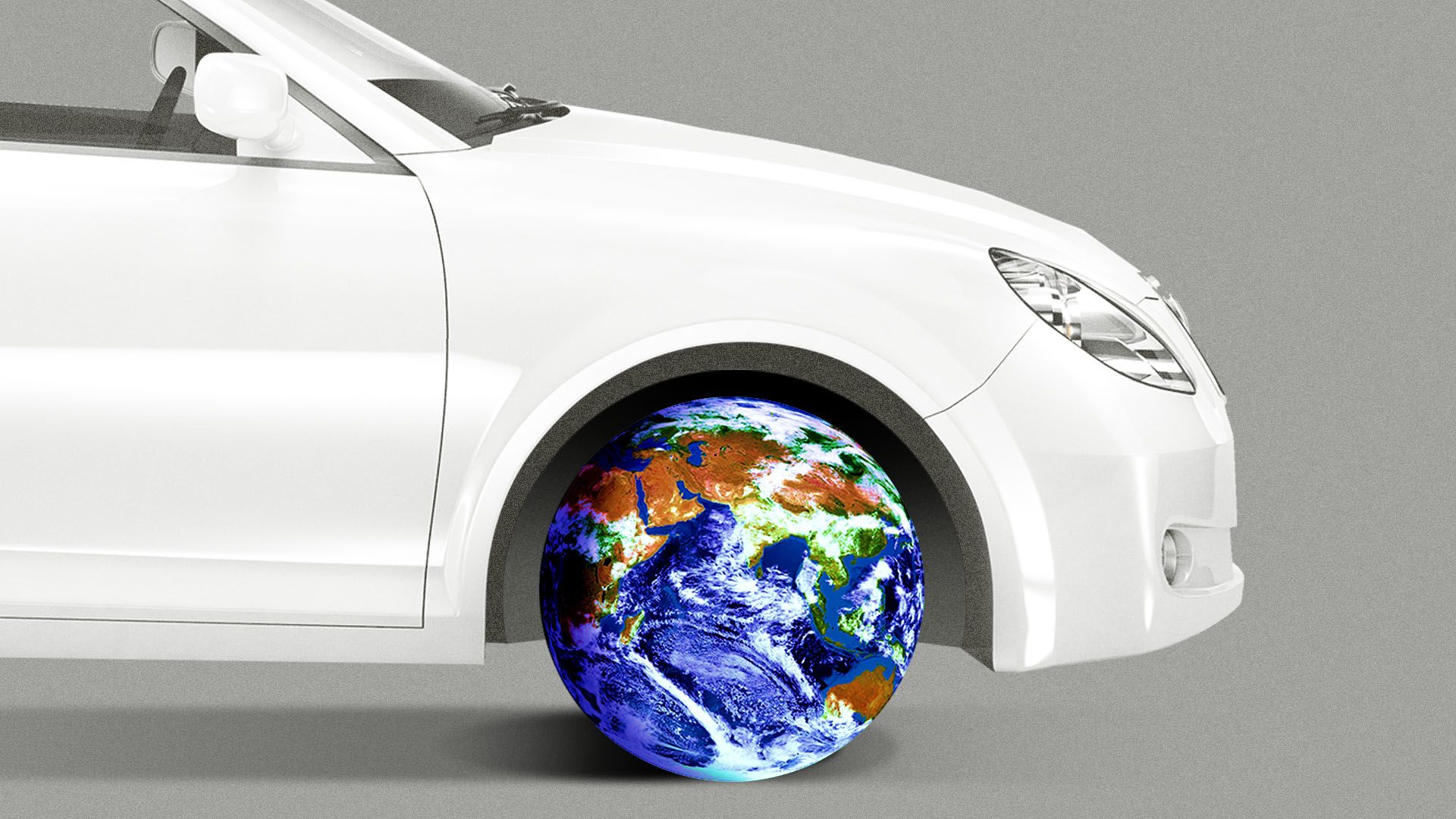The geopolitics of the auto industry
Add Axios as your preferred source to
see more of our stories on Google.

Illustration: Sarah Grillo/Axios
Car companies aren’t just big business, they’re national champions. And sovereign governments are increasingly driving the evolution of the industry.
Why it matters: Carmakers are pooling resources to make expensive bets on electrification, automated vehicles and shared mobility. But with jobs and a reputation for innovation at stake, every country wants to see their homegrown industry lead the way into the future.
Driving the news: Fiat Chrysler (FCA) is proposing a 50-50 merger with France's Renault, creating the world's third-largest automaker, behind Volkswagen and Toyota.
- The new company would combine Renault's expertise in electric cars with FCA's partnerships in self-driving vehicles, including Waymo and Mobileye.
- By combining vehicle platforms and other engineering efforts, the companies could save 5 billion euros annually ($5.6 billion), FCA projects.
- There's minimal overlap between the two companies: Renault is strong in Europe, whereas FCA is strong in the U.S. and Latin America. And together, they'll be better positioned to grow in China.
Political considerations were obvious in the merger proposal from FCA, which signaled it wasn't going to close plants or lay off workers, even though many plants in Europe aren't running at full capacity.
- The French government, whose 15% stake in Renault would be cut in half under a merger, would never go along without that commitment.
The trend: The U.S. government sold Chrysler to Fiat. The Japanese government removed Carlos Ghosn as chairman of Nissan (which helped topple him as CEO of Renault, too). The Italian and French governments have encouraged the proposed merger between FCA and Renault.
And the Chinese government, which brokered the takeover of Volvo, is now dictating an electric future.
- "China's ambition - and it is impossible to separate companies from the government - is to not only be the largest automotive industry but to accumulate the greatest leverage," says China auto industry specialist Michael Dunne, CEO of ZoZoGo.
- That means setting the global standards for future vehicles. "If you would like access to our market, the world's largest, here are the new rules. Take them or leave them."
The bottom line: There are undeniable economic imperatives driving the consolidation of the auto industry. But the hands on the wheel don’t belong to shareholders.

